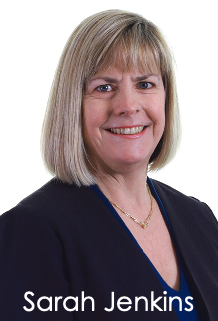Country insights: UK - Sarah Jenkins of MGI UK & Ireland member firm Milsted Langdon talks about current trends in the UK accounting market
In the latest of our Country Insights series, Sarah Jenkins from MGI Worldwide CPAAI member firm Milsted Langdon LLP, comments on current trends in the UK accounting market, with particular focus on recent FRC findings and how changes forced by the global pandemic will affect the UK accounting profession.
Q: The most common finding in the FRC's recent audit quality reviews was that audit firms did not challenge the management of audited entities effectively on the significant judgements they had made - what can the audit profession do to improve the effectiveness of challenges?
Sarah: In a principles-based accounting framework, judgements are commonplace and may be documented or undocumented by the client depending on the relative sophistication of their accounting function.
In clients with more sophisticated accounting functions, the challenge is often around judgements made in areas which may not be covered by an accounting standard or where provisions on the applicability or implementation in certain situations are not included within a standard. Sometimes it may be that more than one set of accounting principles are applicable.
 In clients with less sophisticated accounting functions, the challenge can often be around the appreciation by the client that they have made a significant judgement. Owner managers often have little formal accounting training and whilst they are used to making judgements everyday in running the business, they do not always appreciate that this may be significant for the purposes of accounting information. It is seen as just being a part of the day to day running of the business and is almost certainly not documented. Why these decisions need to be justified to the auditor may not necessarily be understood.
In clients with less sophisticated accounting functions, the challenge can often be around the appreciation by the client that they have made a significant judgement. Owner managers often have little formal accounting training and whilst they are used to making judgements everyday in running the business, they do not always appreciate that this may be significant for the purposes of accounting information. It is seen as just being a part of the day to day running of the business and is almost certainly not documented. Why these decisions need to be justified to the auditor may not necessarily be understood.
There needs to be further education of business owners so that they fully appreciate and understand the effect of such judgements on the accounting figures and how their accounts may be interpreted.
Q: The FRC's 2020 review of corporate governance reporting refers to inconsistent reporting to stakeholders - is it a concern that some companies not meaningfully explaining why they do not comply with the provisions of the code?
Sarah: Education is required on both sides here – business owners need to understand the reporting levels that need to be given by auditors in order for them to comply with auditing standards. Likewise, auditors need to standardise their audit processes and procedures so that consistent reporting is given to all stakeholders, with no deviations.
That way all parties know what to expect and can appreciate the level of reporting that should be, and needs to be, presented.
the: The FRC's key facts and trends in the accountancy profession report 2019 found that at the largest firms less than 20% of partner positions are held by women - what steps have you taken to increase diversity at partner level?
Sarah: This is still a very challenging area and unfortunately in many cases it just comes down to competing with legacy issues and the fact that it is women who have children. Within Milsted Langdon, we identify our rising stars at an early stage in their careers so that we can mentor and nurture them. They also need to have role models who they can aspire to and learn from – with 4 fixed share female partners and one equity female partner out of a total of 22 partners, our aspiring women do already have a number of role models.
We support more family friendly arrangements for aspiring partners who may want to work different or reduced hours. Clients are not moved permanently from women who take maternity leave so that they still have the same opportunity to demonstrate talent on their return and they do not have to rebuild their client portfolio.
Q: How will the changes forced by the coronavirus crisis affect the accounting profession in the UK in 2021?
Sarah: The two significant areas of change here will be communication and working practices.
There will be more use of digital software like Teams and more remote working. This gives us the potential for work to be more efficient but it could also be less effective, so we need to get the balance right – we can work and collaborate remotely, but this needs to be combined with an element of physical interaction. As accountancy firms we are also training organisations – effective training cannot be done solely remotely, so to fulfil out training obligations we need to physically engage with our students. With our clients, systems are now in place which allow us to liaise more regularly face to face, even if it is virtually, ensuring that we can be effective trusted advisers. However, we also need to physically meet to fully nurture and develop our business relationships and to give clients the best care and guidance required. Over time clients will expect to interact in person more readily.
Click HERE to view the full Country Insight
For more information visit Milsted Langdon LLP profile page or their firm website HERE.
MGI Worldwide with CPAAI is a top 20 ranked global accounting network and association with almost 10,000 independent auditors, accountants and tax experts in some 460 locations in over 100 countries around the world.
